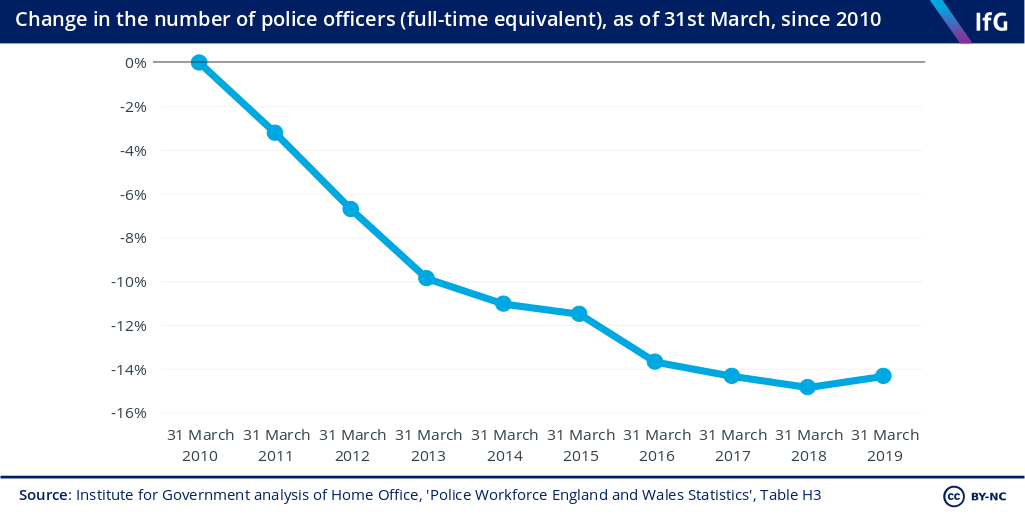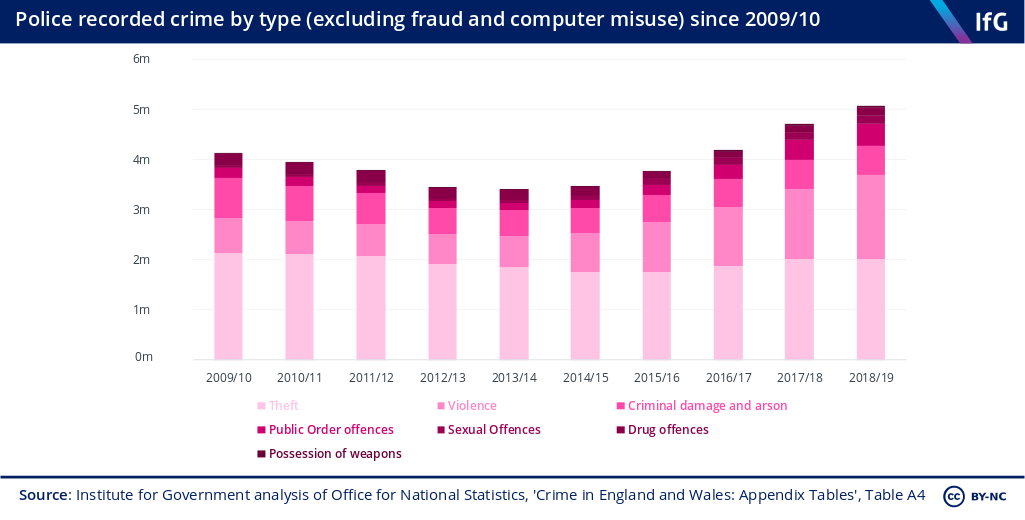More “bobbies on the beat” are unlikely to reduce crime
Reducing crime requires a more nuanced solution than Boris Johnson’s pledge to put more police on the streets.
Reducing crime requires a more nuanced solution than Boris Johnson’s pledge to put more police on the streets, argues Benoit Guerin.
The two candidates to become the next UK Prime Minister have been setting out their visions for tackling crime. Boris Johnson has pledged to hire 20,000 more police officers by 2022. By reversing police cuts and increasing the number of "bobbies on the beat", he says he can reduce crime. Not to be outdone, Jeremy Hunt has also committed to increasing police numbers – although he has steered clear of providing firm numbers.
Johnson’s 20,000 figure matches a pledged made by Home Secretary and former leadership candidate Sajid Javid in May, and is twice the number put forward by Labour at the 2017 General Election. This would see police numbers increase to 140,000 by 2022 – just shy of the 143,734 figure in 2010 – at an estimated cost of £1.1 billion. The problem that the leadership candidates are trying to fix, however, is not as simple as the solution that they are suggesting.

Crime has evolved since the early days of austerity
Surprisingly, perhaps, these proposals were met with scepticism by the police: Chief Constable Mike Cunningham, the CEO of the College of Policing, argued that “an investment in police numbers alone will not be enough to meet the future demands we face as a service”.
This lack of enthusiasm is well-founded. Our analysis from Performance Tracker – produced in partnership with the Chartered Institute of Public Finance and Accountancy – found that the mix of crime has changed since the Coalition Government's programme of austerity began in 2010, with the police getting busier despite falling reported crime rates. Police-recorded crime has been increasing since 2014/15 and the proportion of violent and complex crimes is rising fastest. Sexual offences have gone up by 83%, and violence against individuals jumped by 115%. By contrast, other less resource-intensive crimes like recorded thefts or criminal damage have not risen as quickly (with respective increases of 15% and 14% in the same period).
This steep increase in complex and violent crimes means that deploying additional police on the streets may not be appropriate, with these crimes often requiring more substantial involvement from other types of police staff including those working in operational and business support.

More "bobbies on the beat" will not effectively reduce crime
Johnson’s proposals might appear, at first glance, like an appropriate response to tackle crime and to maintain order – especially when the number of people reporting ‘high visibility’ of police foot patrols more than halved from 39% in 2009/10 to just 16% in 2018/19. But there is limited evidence that “more police on our streets means more people are kept safe” and will reduce crime, as Johnson has said. As Sir Thomas Winsor, the Chief Inspector of Constabulary, recently noted, while police numbers need boosting the proposals are “not the most efficient and effective way of spending £1.1bn on policing”.
For a politician aiming to cut crime, alternatives to increasing police numbers could well be more cost-effective. One approach may be to target any increase in spending at programmes which will effectively tackle crimes which are rising most quickly. This could include hot spot policing (to concentrate police activities and resources in areas where crime is concentrated) or better street lighting. The Government can already use evidence from its What Works Centres – which were set up in 2013 as a way to share best practice and evidence. Another alternative is allocating funding to other public services which could help prevent young people from getting involved in crime in the first place.
The candidates’ proposals appear to address immediate public worries. In the short term, this makes for good headlines in a leadership campaign. However, tackling crime requires long-term planning, understanding the major challenges facing the police, and thinking seriously about where resources can best be deployed. Increasing the number of bobbies may look good on paper, but it might not be so effective on the street.
- Supporting document
- Performance Tracker 2018 web.pdf (PDF, 2.02 MB)
- Topic
- Public services Policy making
- Keywords
- Criminal justice Leadership election
- Political party
- Conservative
- Public figures
- Boris Johnson
- Publisher
- Institute for Government